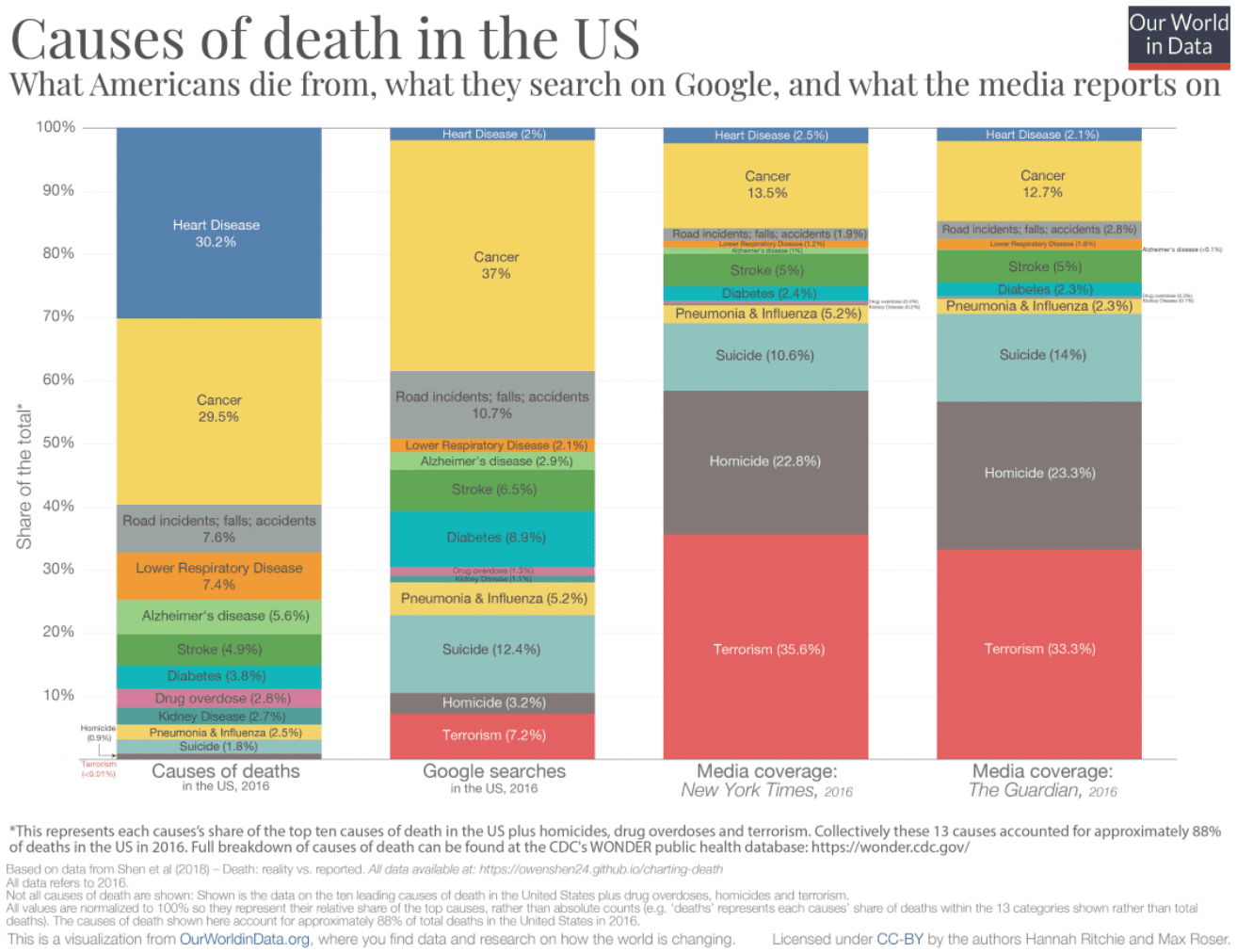By Colin E. Champ, MD, CSCS – Radiation Oncologist
A common side effect of cancer treatment is a lack of hunger. Well-intentioned families worry that their loved ones are not eating, but we often forget how much taste drives hunger; without a taste for food, the once pleasurable activity of eating becomes a dreadful chore.
A lack of hunger for life is increasingly happening in our present day. Life expectancy and mortality rates in the United States are increasing; however, there is an overwhelming increase in mortality among young and middle-aged adults between 25-64 years old.
Why are Middle-Aged Adults Dying?
Antibiotics, sanitation, and advances in medical care helped defend our bodies from common infections that stood as a frequent cause of death in our near-distant past. Defeating them, however, has seemingly opened the door for a new villain: ourselves.
Culprits in the Decrease in Life Expectancy
The major contributor to the increase in mortality, and perhaps the saddest, is the large increase in death from drug overdoses, suicides, and organ system diseases, especially those related to alcoholism.
Other changes, like increased rates of pedestrians killed by cars, are also not astonishing given the massive number of drivers texting and, on their phones, while operating their vehicles.
A large portion of the population spends countless hours watching media coverage of negative topics that have no foreseeable beneficial influence on their lives. These voyeuristic hours become wasted opportunities to enjoy and improve their lives and relationships through action. The result is instead a bombardment with negative messaging where viewers are force-fed scare tactics demonstrating how terrible life has become due to terrorism and countless murders.
We are seeing an increase in the negative and irrelevant message of the news, an unfortunate increase in suicide, alcoholism, and injuries within the U.S., and we continue to see a large rise in diseases related to obesity, like cardiovascular disease, cancer, and diabetes. At this point, we have to ask ourselves how related are all of the above?

The Health of Our Society
The alarming reasons for the drop in longevity may be mere indications of the recent erosion of our health, and several major societal shifts have occurred resulting in unexpected consequences, including:
1. Pseudo Social Engagement
Traditional social outlets have been eroded as we rapidly moved away from social clubs, religion, family, communities, local groups, and other tribal mentalities to an infatuation with corporations, social media, and countless hours on the pseudosocial internet.
2. Confusing Distraction with Purpose
The business “crime” of attention larceny took off throughout the 20th century and exploded in the 21st. The former may have been the same period where life expectancy rapidly climbed, but during this time, with the entrance of television into the home, followed by home computers and the spread and accessibility of the internet, we welcomed advertisers into our homes. A consequence unforeseen by the average American was the willing handover of our attention to the budding attention industry.
In other words, we have traded those activities that promote health, happiness, and resilience for distraction disguised as entertainment.
The Solution
These “solutions” cut to the core of the problem; our society is being veered in a direction that actively promotes poor lifestyle choices. It has been hijacked by marketers, salesman, and massive corporations that purposefully push us to buy products we don’t need – products that stand in direct opposition to our health and happiness. How can we, as physicians, aim to improve someone’s health if they spend countless immobile hours watching television and browsing the internet, rarely cooking, or eating a meal composed of real food, and have watched passively if not lethargically as the social fabric of their life has been unwound?
Many of these solutions are challenging, but a handful may be quite simple. For instance, focusing on the rewarding and meditative processes of growing and cooking real food, socializing with our family and friends while cooking and enjoying our own meals, and benefitting from the physical and mental growth achieved during the rewarding and meditative process of exercise will serve as the antidote to offset obesity-related diseases, while hopefully providing reward, self-worth, and a reason for getting out of bed each morning. Turning away from technology and automation disguised as the solution to our every want and desire and instead embracing the more simplistic and natural can enable and allow us to live a healthier life that’s more enjoyable, fulfilling, and complete.
The battle to defeat cancer mimics life in many ways. Without a taste and hunger for food, it becomes a dreadful chore to eat. But without a hunger for life, it becomes dreadful to live. Increasing our hunger for health and our hunger for life is critical.
Inspire Exercise Medicine
Inspire Exercise Medicine is focused exclusively on supporting cancer patients on the road to regaining their health with oncologist defined evidence-based treatment plans for nutrition and exercise in support of their overall health and wellness.
A significant part of the Inspire Exercise Medicine space is dedicated to physical, monitored exercises on machines and with exercise equipment, specifically selected for treatment purposes.
Dr. Colin Champ, MD, CSCS
Dr. Colin Champ, MD, is a radiation oncologist with board certifications in radiation oncology and integrative and holistic medicine. Dr. Champ’s research interests include the prevention and treatment of cancer with lifestyle modification, including exercise and dietary modification
Inspire Exercise Medicine
239.429.0800
InspireExerciseMedicine.com
3555 Kraft Road, Suite 130
Naples, FL 34105









